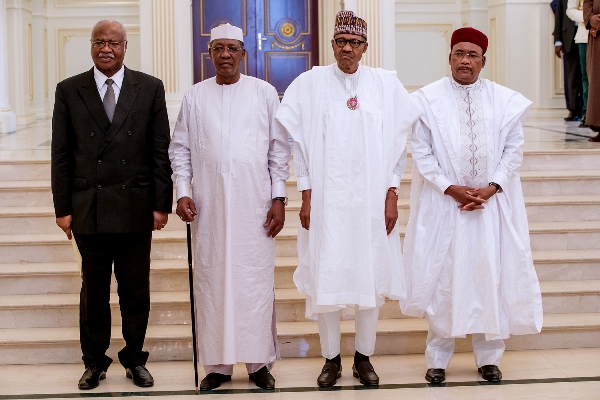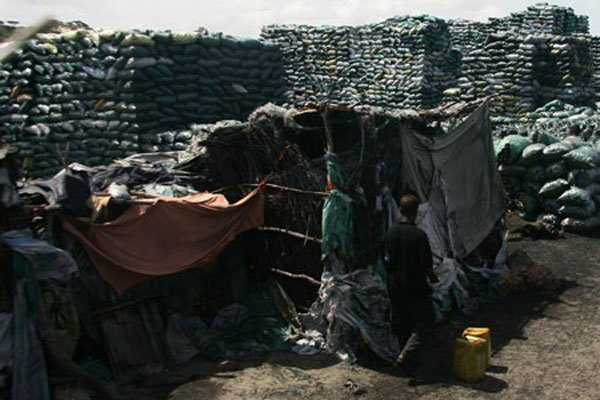Abuja, Dec. 29, 2023: Nigeria’s total public debt stock, according to the Debt Management Office (DMO) in.a recent computation, hit N87.91 trillion (114.35 billion dollars) as of Sept. 30.
The DMO said that the amount represented the domestic and external debts of the Federal Government, the 36 state governments and the Federal Capital Territory (FCT).
The N87.91 trillion total debt stock represents a marginal increase of 0.61 per cent, when compared to the June figure of N87.38 trillion.
The debt office said this trend was explained by the decrease in external debt from 43.16 billion dollars as at June 30 to 41.59 billion dollars as at Sept. 30.
It said that there was also a relatively moderate increase of N1.80 trillion in the domestic debt.
“External debt decreased due to a redemption of 500 million dollars Eurobond.
“It also decreased due the payment of 413.959 million dollars as first principal repayment of the N3.4 billion dollars loan obtained from the International Monetary Fund (IMF) in 2020, during Covid-19,” the DMO said.
According to DMO, the servicing of all the debts is a clear demonstration of the federal government’s commitment to honouring its debt obligations.
It, however, said that President Bola Tinubu’s revenue generation initiatives remained important to Nigeria’s overall fiscal balance
Some Nigerians have, however, been raising concerns that the country’s dependence on debt to fund expenditure had become worrisome.
Bit the DMO said that decades of operating budget deficits by successive governments is responsible for the high debt profile.
According to Patience Oniha, Director-General of the DMO, a review of Nigeria’s fiscal data shows that not only has the government operated budget deficits which have been growing, but most of the deficits have been funded through local and external borrowing.
“The records show that deficits in the annual budgets, including supplementary budgets rose to N10.78 trillion in 2023 from N1.62 trillion in 2015.
“Between 82 per cent and 99 per cent of these were funded by new borrowing which ranged from N1.46 trillion in 2015 to N8.80 trillion in 2023.
“These facts confirm that these budget deficits, funded by new borrowings, have been responsible for the rapid growth in the debt stock and the resultant increases in debt service,” she said
Findings revealed that Nigeria has secured loans totalling 2.7 billion dollars from the World Bank under the administration of President Bola Tinubu, amid these concerns.
The four approved loans are for power (750 million dollars), women empowerment (500 million dollars), girl’s education (700 million dollars), and renewable energy (750 million dollars).
The World Bank recently disclosed that Nigeria was the top recipient of its fresh loans, with about 2.9 billion dollars released to the country.
The International Monetary Fund (IMF) urged the Nigerian government to take steps to increase the country’s revenue base and moderate its dependence on debts.
Ari Aisen, Resident Representative, IMF Nigeria Office, also advised the government to drastically reduce dependence on borrowing to fund expenditure.
He said that the debt situation had deteriorated because the federal government spent more than it was actually getting in revenues.
“How do you reduce the spending needs of the government? That should be the question.
“It is really about fiscal discipline. People should not permanently spend beyond what they generate in revenue because it becomes unsustainable,” he said.
Yemi Kale, Chief Economist, KPMG, said that the focus should be on the Consumption, Investment, Government Expenditure, Exports and Imports (CIGXM) economic indices to fully harness the potential of the country’s economy.
Kale said that under the CIGXM, Nigeria must begin to boost consumer purchasing power, enhance ease of doing business, provide the right infrastructure, increase public investment and enact fund usage transparency.
He said the country must increase export tentacles, enhance competitiveness, promote income substitution and address large debt burden and debt servicing ratio to ensure long-term economic sustainability.
“Since 2013, Nigeria’s public debt has increased by almost seven folds and inflation and high debt servicing costs are factors that have raised debt levels.
“The government must curtail excessive borrowing by raising revenues from both oil and non-oil sources and engage in prudent budget practices,” he said.
He urged the Federal Government to implement fiscal restraint, enhance revenue generation through taxation changes, diversify the economy, and successfully control governmental expenditure to lower the debt load and foster economic growth.
According to Uche Uwaleke, a Professor of capital market at the Nasarawa State University, Keffi, a related issue has to do with the mode of financing the over nine trillion Naira deficit in the 2024 bidget proposal and its likely impact on cost of capital for firms and the stock market.
Uwaleke said that in previous budgets, the amount voted for new borrowings were split fairly equally between domestic and foreign sources.
“This time around domestic borrowing is taking up a huge chunk at about 78 per cent, N6.1 trillion out of N7.8 trillion, provisioned for new borrowings
“This can have the effect of crowding out the private sector, hiking interest rates, increasing cost of funds, and depressing the equities market as investors migrate to fixed income securities.
“The outcome will be a further weakening of the productive sector,” he said.
He advised the Federal Government to explore more opportunities for concessional project-tied loans from multilateral and bilateral sources.
He said that this would help to boost fx reserves and stabilise the exchange rate.
“With respect to borrowing domestically, its important that emphasis should be placed on the use of the right instruments such as infrastructure bonds as opposed to Federal Government of Nigeria (FGN) bonds that are inflationary prone,” he said.
As Tinubu awaits legislative ascent to his administration’s first full budget to commence in January, Nigerians remain hopeful that his fiscal planners would device means to boost revenue and curb the dependence on borrowing.
But the nine trillion Naira deficit in the budget proposal, which is to be funded through fresh borrowing calls for concern.











